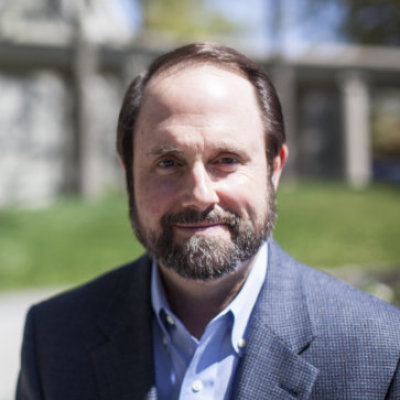Responding to 'lifequakes,' redeeming the present

Eric Staggs of Forney, Texas, is fighting Stage IV colon cancer. He has a vintage Ford Bronco he has wanted to restore but lacked the energy or time. Before he and his family left last month on a medical trip, he asked a friend if he could install the new tires and wheels Eric had bought for it.
His friend and some neighbors and other friends decided they would become “Team Bronco.” Over six frenetic days, they stripped the paint, re-tuned the engine, added new shocks to go with the new tires and rims, and repainted the Bronco cobalt blue. Then they put the Staggs family’s favorite Bible passage—Psalm 91—on the spare tire cover.
Eric came home and was so shocked he began to cry. “I’m just so in awe of the kindness and generosity of God’s people,” he said. “Guys that I’ve never met before felt like it was a nice thing to do. And the world needs more people that want to do nice things.”
The three stages of disruption
Yesterday, we focused on God’s invitation to partner with him in redeeming the pandemic and our other crises. Today, I’d like to think about an intriguing way to reframe such service in these difficult days.
Bruce Feiler’s new book, Life Is in the Transitions: Mastering Change at Any Age, is being published today. A fascinating essay adapted from it appears in the Wall Street Journal. Here we learn from Feiler’s research that the average person will experience around three dozen “disruptors” in our adult lives, one every twelve to eighteen months. However, three to five of these will be destabilizing for us.
Feiler calls these “lifequakes” and notes: “What’s unique about this particular moment in history is that for the first time in seventy-five years, the entire country is going through a life transition together.”
His research shows that we experience these destabilizing disruptors in three emotional phases: “the long goodbye,” “the messy middle,” and “the new beginning.”
“The long goodbye” requires that we accept emotions such as fear, sadness, and shame, using rituals such as tributes and communal experiences to express our pain. “The messy middle” requires us to shed old mindsets, delusions, and dreams to form new habits, norms, and skills.
These new ways of life lead to “the new beginning,” when “a tinge of normalcy appears, a glimmer of light. The past no longer casts such a long shadow; the future begins to come into view.” According to Feiler, it is vital to “update your personal story” to say, “I used to be that. Then I went through a change. Now I am this.”
Let’s consider two biblical responses.
Redeeming the present
First, we can find ways to reframe our present challenges even if the future is a long time in coming. Most experts say the pandemic will not end until there is a vaccine, which is months away at a minimum. In the meantime, we are caught in “the messy middle.”
But we can redeem these days spiritually even if we cannot do so medically. As believers, we know that “kingship belongs to the Lord, and he rules over the nations” (Psalm 22:28). He is not surprised by this pandemic and wants to use it for his glory and our good.
For example, we can build new patterns of spiritual formation now that will endure when the pandemic ends. We can use social media and other technology to share our faith and God’s love with hurting people, building ministry methods that will be effective for years to come.
Following God into the future
Second, we can seek our Father’s guidance as we find ways to serve God and others in the midst of these “lifequakes.”
A leadership consultant taught me years ago that “new information presents the opportunity to make new decisions.” Where we have been may not be where we need to go. We should seek God’s leadership in order to fulfill God’s purposes.
I am reading through the book of Joshua these days and came upon the battle of Ai in Joshua 7–8. Joshua assumed that tactics which worked in past battles would work again (Joshua 7:2–3), but his soldiers were routed (vv. 4–5) because of sin among the people (vv. 6–26). After this sin was exposed and punished, Joshua divided his forces for the first time in their military history and was able to defeat the city (Joshua 8:1–29).
In other words, what has worked in the “old normal” may not be God’s plan for the “messy middle” leading to the “new normal.” If we will seek his direction for each new day (cf. Mark 1:35), our Father will lead us by the power of his Spirit into his best for us (cf. Jeremiah 29:11; Romans 12:2).
But only then.
Two types of battles
On this day in 1789, French revolutionaries stormed the Bastille. This signaled the beginning of the French Revolution, a decade of political turmoil and terror that led to independence from the French monarchy.
I suggest that we choose not a battle for independence but for dependence. Each day, we decide whether to manage our life transitions in our fallenness or God’s omnipotence, following our wisdom or his omniscience.
Which battle will you fight today?
Originally posted at denisonforum.org





















